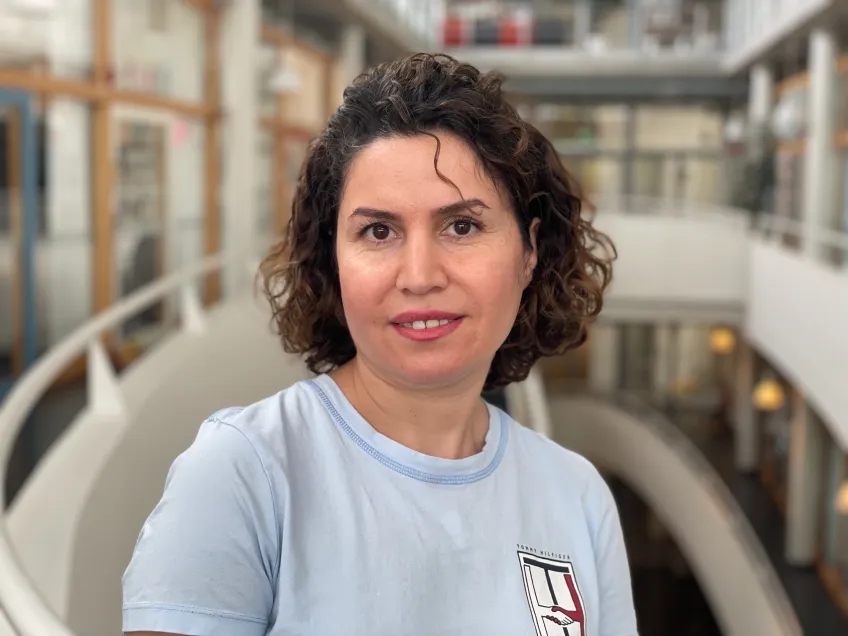Type 1 diabetes is a condition where the body cannot produce insulin and the person with the disease needs to take insulin every day to manage blood glucose levels. Type 2 diabetes is a more complex condition. Some people with type 2 diabetes need to take insulin every day, whereas others have better insulin production.
A goal for many diabetes researchers is to develop insulin-producing beta cells that can be transplanted into patients with diabetes. The main aim of cell therapies is to achieve good blood sugarcontrol, without insulininjections.
Several researchers at Lund University Diabetes Centre (LUDC) strive to understand why insulin-producing beta cells fail to secrete enough insulin in type 2 diabetes. The knowledge may lead to new treatments, such as cell therapies, in the future. Two diabetes researchers at LUDC who contribute with new knowledge to this research field are now awarded grants.
Stem cells from patients
Sevda Gheibi works as a researcher within a group that studies insulin-producing beta cells from stem cells derived from patients with type 2 diabetes to understand disease processes. She receives a grant of about SEK 450,000 from Hjelt Diabetes Foundation for studies of a protein called ACSL1. Previous research by Sevda Gheibi has shown that the protein plays a key role for beta cell function. The support from the Hjelt Diabetes Foundation allows her to pursue a project that may improve the understanding of this protein.
“An objective with the project is to investigate whether changes in the gene that codes for the protein can increase the risk of developing type 2 diabetes. We hope that the knowledge can be used to predict who is at risk of developing the type 2 diabetes or develop new treatments of the disease,” says Sevda Gheibi, researcher within diabetes and molecular metabolism at LUDC.
The studies will be conducted on clinical and genetic data from patients with type 2 diabetes. The researchers will also study insulin-producing beta cells derived from stem cells from patients with the disease.
“By studying stem cells from people with diabetes, we can learn how to repair or support the insulin-producing cells. Long-term, we hope that the knowledge can be used to develop cell therapies in which damaged cells are repaired or replaced," says Sevda Gheibi.
Lab-grown cells
Cell therapy is still an unusual form of treatment of diabetes. People with type 1 diabetes can receive a treatment which involves transplantation of insulin-producing beta cells from a donor to the patient’s pancreas. Research is being carried out to develop alternative treatments for people with type 1 diabetes.
Diabetes researcher Isabella Artner develops new knowledge that can pave the way for cell therapies for people with both forms of diabetes. She receives a grant of around SEK 180,000 from the Hjelt Diabetes Foundation for a research project that is focused on type 2 diabetes.
Isabella Artner's research group investigates how insulin-producing beta cells develop and function and what factors are important for their maturation. The research group will now investigate what can go wrong during cell development and how this may contribute to type 2 diabetes later in life.
“I hope that the knowledge can be used to develop methods that can be used to grow insulin-producing cells in the lab. In the future, such cells may be transplanted to patients with type 2 diabetes. This type of treatment would be beneficial for patients with type 2 diabetes who need insulin injections every day," says Isabella Artner, associate professor of endocrine cell differentiation and function at LUDC.
Better treatments
The research group has previously shown that a certain protein may be important for the development of type 2 diabetes. This protein is called the MafB transcription factor, and previous studies on mice and human cells have shown that it is important for the development of insulin-producing cells in the pancreas.
The two genes ETV1 and AUTS2 appear to regulate several of the proteins that are important for the function of the insulin-producing cells. An important aim with the new studies is to identify more proteins that are important for the function of the insulin-producing beta cells.
“Diabetes is a chronic disease that involves continuous monitoring and treatment. I hope that our research can contribute with new knowledge that may lead to better treatments," says Isabella Artner.


